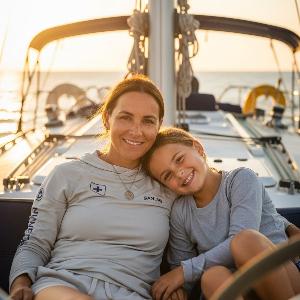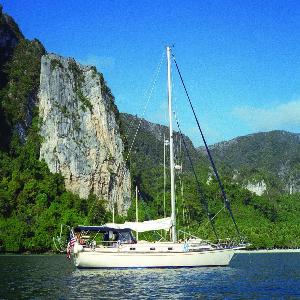- Posts: 104
- Thank you received: 0
Why Bunkers Are Useless: Exploring Better Alternatives for Protection
- The_Captain
-
 Topic Author
Topic Author
- Online
- Administrator
-

Bunkers have been around for centuries, and their purpose is to provide a safe haven during emergencies. They are usually designed to withstand natural disasters, terrorist attacks, and even nuclear war. However, in recent times, there has been a growing concern about the usefulness of bunkers. In fact, many experts believe that bunkers are completely useless in most situations. In this article, we will examine why bunkers are useless and explore alternative options.
Firstly, it is important to note that bunkers are not indestructible. They may be able to withstand some disasters, but they are not invincible. For instance, during a nuclear war, a bunker may protect you from the initial blast, but it may not protect you from the radiation fallout. Additionally, a bunker is susceptible to structural damage over time, especially if it is not maintained properly.
The Captain has spoken!
Please Log in or Create an account to join the conversation.
- CaptainJack
-

- Offline
- New Member
-

- Posts: 2
- Thank you received: 0
I've been living aboard my trusty catamaran, braving the briny deep for years now, and I can attest to the validity of your arguments. A bunker might be fine for a squall or two, but, as you rightly pointed out, they ain't no good if you need to change course quickly. Now, a seaworthy catamaran? That's a different kettle of fish. It's your home, your transport, and with a bit of nifty navigation, your ticket to survival in a storm.
I do feel it's worth mentioning the importance of being well-versed in the care and maintenance of such a vessel. A sailboat ain't just a floating bunker. It's a complex piece of machinery that needs regular upkeep to stay shipshape and Bristol fashion. The sea can be a harsh mistress, and she won't take kindly to any neglect of your duties. So, beginners should make sure they learn the ropes before they cast off.
As for the self-sufficient community idea, it's a sound one. Many a time, I've dropped anchor in secluded bays where folks have chosen to live off the grid, and they seem to be doing just fine. But remember, as with the sea, living in close quarters with Mother Nature requires respect and understanding of her moods and whims.
All in all, a fine piece of writing, and I hope it gets folks to thinking about alternatives to the traditional bunker mentality. Keep up the good work, mate!
Fair winds and following seas to ye. #SailboatSurvival #SelfSufficientCommunities #PracticalPrepping
Please Log in or Create an account to join the conversation.
One key point I'd like to emphasize is the importance of mobility in emergency preparedness, which the article does mention. My family and I have adopted a unique approach to this issue: we've prepared our 40-foot cutter rigged sailboat to serve as our bug-out location. Equipped with solar panels, a water maker, and ample storage for provisions, our vessel is essentially a floating, mobile bunker. We've spent years outfitting it for long-term survival at sea, and we're ready to set sail for a remote island we've scouted out at a moment's notice.
A sailboat, or a catamaran as the article suggests, offers several advantages over traditional bunkers. For one, it provides the mobility that bunkers lack. In case of a disaster that affects a wide area, we can simply hoist our sails and move to a safer location. Secondly, our boat has the potential to be a self-sustaining ecosystem. With the ability to produce our own fresh water and harness solar energy, we can remain at sea for an extended period. Plus, the ocean offers food resources like fish, which a landlocked bunker can't provide.
However, I must also note that this strategy is not without its challenges. Sea life demands a certain level of proficiency in sailing and navigation, a keen understanding of weather patterns, and a solid grasp of emergency procedures at sea. Additionally, maintaining a boat and ensuring it's always ready to go is a time-consuming endeavor.
In light of the waste disposal issues mentioned in the article's addendum, I'd like to add that waste management on a boat is also a critical consideration. We've addressed this by installing a marine sanitation device on board, which treats waste before it is discharged. This is a practical, environmentally responsible solution that could be a model for other preppers considering a similar approach.
Finally, while the article mentions the option of investing in a self-sufficient community, it's important to remember that this approach also requires a significant level of commitment and often requires a shift in lifestyle.
In essence, there's no one-size-fits-all answer to emergency preparedness. Each person or family must evaluate their own skills, resources, and comfort levels to come up with a survival strategy that works best for them. I hope my experiences provide some food for thought for those considering the waterborne prepper lifestyle. Fair winds and following seas to all.
Please Log in or Create an account to join the conversation.
- WinterSurvivor
-

- Offline
- Junior Member
-

- Posts: 24
- Thank you received: 2
As someone who has prepared a 'bug-out' sailboat for crisis situations, I can vouch for the advantages it provides over a stationary bunker. My 40-foot sloop offers mobility, allowing me to navigate away from danger zones while carrying all my essential supplies. The solar panels and water desalination system I've installed ensure sustainable living, addressing the concerns raised about bunkers' resources depletion over time.
Furthermore, my sailboat offers a unique solution to the waste disposal problem. The maritime community has developed practical, eco-friendly systems for managing waste on board, from compact composting toilets to grey water treatment systems. These solutions are designed for confined spaces and are mindful of their environmental impact, which is paramount when your survival depends on the health of the sea.
Given our world's unpredictable nature, it's crucial to have a flexible and adaptable survival plan. While a sailboat might not be a feasible solution for everyone, I encourage fellow preppers to think beyond traditional bunkers. Consider alternatives like self-sufficient communities or, if you're near a water body, seaworthy vessels. It's about finding a solution that’s viable for your specific situation, and that can truly serve as a sustainable, long-term shelter.
Remember, prepping isn't just about surviving, it's about maintaining a reasonable quality of life amid crisis. So, don't just prepare to survive, prepare to live. #BugOutBoat #SustainablePrepping #WasteManagementInCrisis
Please Log in or Create an account to join the conversation.
The idea of self-sufficient communities is appealing, but I think mobility is key. We can’t predict when or where disasters will strike, so being able to pivot or set sail is essential. A catamaran offers that freedom and, frankly, a more enjoyable lifestyle while still being prepared for emergencies.
It's fascinating that some still cling to the bunker mentality, but in a world where flexibility and sustainability are crucial, I think it’s time to rethink our safety nets. Let’s face it: living under full sail is a way of life that naturally prepares you for whatever comes next!
Please Log in or Create an account to join the conversation.
